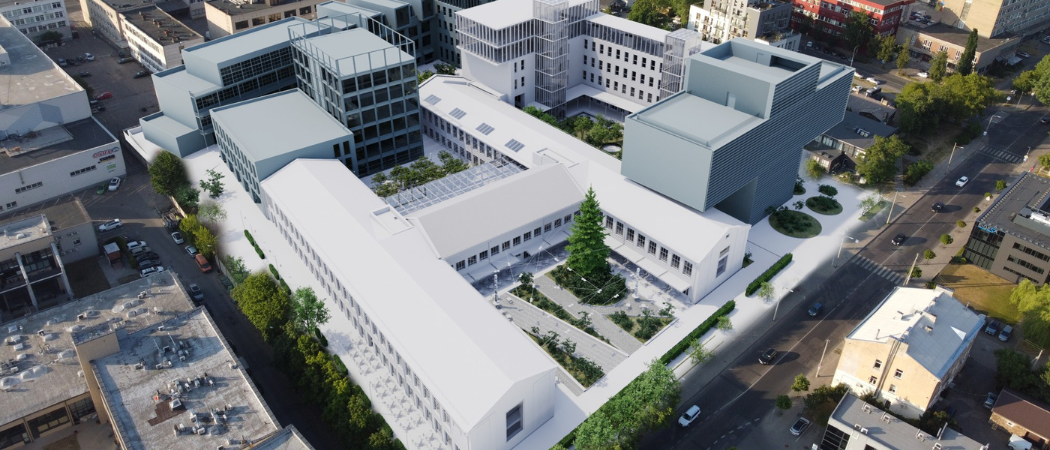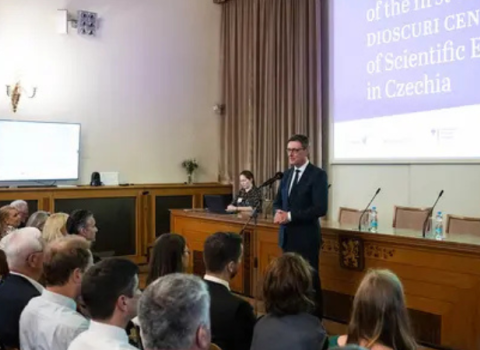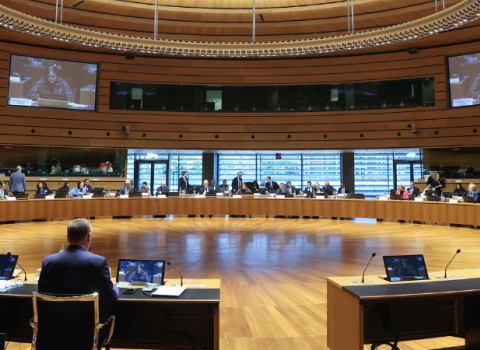Two science parks now under construction will give start-ups the space and facilities needed to grow. But will that attract investment?

Tech Zity Vilnius project. Photo credits: Tech Zity
Two gigantic construction projects underway in Lithuania promise to transform the country’s start-up ecosystem.
Both are being promoted as the biggest of their kind in Europe, providing much needed space and services for companies setting up in the capital city of Vilnius.
One, Tech Zity, claims to be Europe’s largest tech campus, with offices, a conference centre and other facilities on the 55,000 square metre site of a former Soviet-era factory. The project’s CEO Darius Žakaitis says there will be spaces designed for research and development and other deep tech activities, as needed.
The second, Bio City, touts itself as the largest in Europe for biotech start-ups. It will have six complexes, including two research centres and four clinical grade manufacturing facilities for the production of complex products such as gene therapies. It expected to take a decade to complete, at a total cost of €7 billion.
Spread across a site that is equivalent in size to 10 football fields, construction of Bio City is led by Northway Group, a consortium of 17 life sciences companies and funded by a combination of debt and private investment.
Last month, the gene therapy manufacturing centre, which is the only one of its kind in the Baltics, opened for business.
“We have talented people and good conditions for growth,” says Žakaitis. “But it’s crucial to strengthen the infrastructure [so] early-stage and fast growing start-ups can compete on a global scale.”
Tech Valleys
Lithuania has a population of less than three million but it punches above its weight in science, particularly biotechnology. OECD ranks it third in the world for investment in biotech R&D, and it is second in the EU for the number of students studying STEM disciplines, with a quarter of students selecting these subjects.
University ‘tech valleys’ support the transfer of knowledge from academia into new companies, providing incubation, cheap office space and mentoring services on campus. One of these, Sunrise Tech Park, opened in 2015 and has since supported the creation of nearly 400 enterprises.
It is also home to Baltic Sandbox Ventures, the only venture capital fund in the Baltic region specialising in deep tech and life science start-ups.
Life sciences has strong support from the government, which has ambitions for the sector to contribute 5% of gross domestic product by 2030. There are more than 550 biotech companies, with some start-ups attracting international investors. In August, Vilnius-based enzyme design start-up Biomatter raised a €6.5 million seed round led by Finnish venture capital firm Inventure and Germany’s UVC Partners, while CasZyme, a CRISPR technology company founded in 2017, has since won six EU grants.
The new tech hubs being built in Vilnius are welcome news for the deep tech cluster because they attract international attention, says the co-founder and CEO of CasZyme, Monika Paulė. “I’m very happy we’re getting this traction. We can then think about companies coming and investing in Lithuania, working with Lithuanian companies and maybe expanding their presence by different means, [through] collaborations and investments.”
The environment has changed drastically since she began her career in life sciences more than a decade ago, Paulė, said. “We have everything, universities, research institutes, hospitals, start-ups, more maturing small and medium sized companies, and huge corporations … Ten years ago, the picture wasn’t so full.”
Outgrowing the incubator
For companies that spoke to Science Business, the main obstacle to growth that campuses like Bio City and Tech Zity remove is in providing space for start-ups when they become too big for the incubators and accelerators where they started out.
For biotech companies, laboratories come at a premium. According to real estate company Savills, across Europe the cost to rent a fully fitted lab is 76% higher on average than a comparable office space. University tech valleys can offer rents to emerging start-ups at around a 50% discount on the market rate, but to grow, they need to move on.
“Either you have to really invest into huge facilities, or [build] it yourself,” says Paulė. “It’s challenging to find this transitional space for biotech.”
Mishkay Biotech, a manufacturer of nutritional supplements made from mushrooms, has experienced these growing pains, but in September announced had secured further funding from Vilnius-based investor Tesonet to complete the building of an R&D laboratory and enhance production capabilities.
Hubs are not a cure-all for the challenges maturing tech ecosystems face, particularly when it comes to growth capital and broader support for companies looking to scale up complex technologies.
But the pulling power of these projects shouldn’t be underestimated either. Their size sends a message that Lithuania is open for business and the Vilnius investment agency is putting money into advertising the city as a place where talent and investment should come.
Proximity to university campuses and other tech companies means the hubs can position themselves as a meeting point for academics, entrepreneurs and industry.
Building the hubs also builds career paths for aspiring entrepreneurs. “The main value of Bio City [for students] is knowing that huge opportunities are nearby,” says Laima Balčiūnė, CEO of Sunrise Tech Park, which is based at Vilnius Gediminas Technical University. “For young entrepreneurs, the ones planning their career, it’s important to see what the future might look like.”





 A unique international forum for public research organisations and companies to connect their external engagement with strategic interests around their R&D system.
A unique international forum for public research organisations and companies to connect their external engagement with strategic interests around their R&D system.